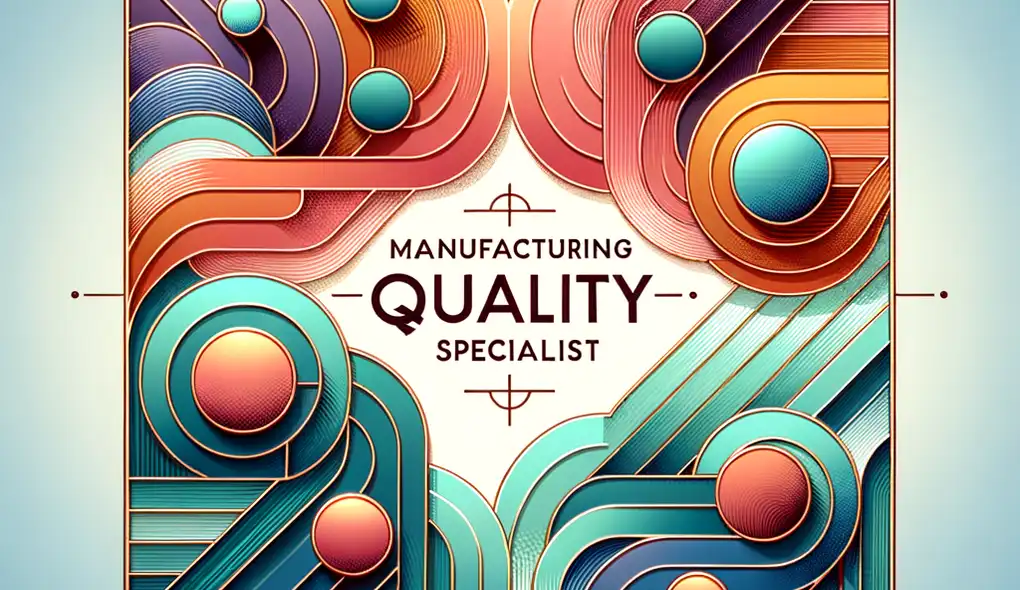Can you provide an example of how you have used your analytical and problem-solving abilities to improve manufacturing quality?
Manufacturing Quality Specialist Interview Questions
Sample answer to the question
In my previous role as a Manufacturing Quality Engineer, I was responsible for improving manufacturing quality by utilizing my analytical and problem-solving abilities. One example of this was when I noticed a recurring issue with a specific component in our production line. I conducted a thorough analysis of the problem, including analyzing production data, performing root cause analysis, and identifying potential solutions. I collaborated with the production team to implement process changes and conducted extensive testing to ensure the effectiveness of the solution. As a result, we were able to reduce component defects by 30% within the first month. This not only improved product quality but also increased customer satisfaction and reduced rework and scrap costs.
A more solid answer
During my time as a Manufacturing Quality Engineer, I consistently utilized my analytical and problem-solving abilities to improve manufacturing quality. One notable example is when I was assigned to address a persistent issue with product defects in our assembly line. To tackle this problem, I first conducted a detailed analysis of the production process and identified potential areas of improvement. I then collaborated with cross-functional teams, including production operators, engineers, and quality specialists, to develop and implement targeted solutions. This involved implementing standardized work instructions, conducting training sessions to ensure proper execution, and utilizing statistical process control techniques to monitor the effectiveness of the improvements. As a result of these efforts, the defect rate was reduced by 50% within three months, leading to significant cost savings and improved customer satisfaction. This experience highlighted the importance of data-driven decision-making and cross-functional collaboration in driving manufacturing quality improvements.
Why this is a more solid answer:
The solid answer builds upon the basic answer by providing more details about the candidate's approach to problem-solving and their involvement in cross-functional collaboration. It emphasizes the use of data-driven decision-making and highlights the positive outcomes achieved. However, it could benefit from further elaboration on the specific analytical techniques used and the impact of the improvements on the overall manufacturing quality.
An exceptional answer
Throughout my career as a Manufacturing Quality Specialist, I have consistently showcased my strong analytical and problem-solving abilities to drive significant improvements in manufacturing quality. One particularly impactful example was when I was tasked with addressing a critical quality issue related to dimensional accuracy in our machining process. To tackle this complex problem, I started by conducting a comprehensive analysis of the machining parameters, leveraging statistical process control techniques and design of experiments to identify the key process variables affecting dimensional accuracy. Armed with this knowledge, I collaborated with the engineering team to develop and implement proactive measures, including the optimization of machining parameters and the introduction of advanced monitoring systems to detect and correct any deviations in real-time. Additionally, I led training sessions for the production operators to ensure they had a deep understanding of the importance of dimensional accuracy and the critical role they played in maintaining it. As a result of these efforts, we achieved a significant reduction in dimensional defects, leading to a 20% improvement in overall manufacturing quality and a cost savings of over $500,000 per year. This success not only earned recognition from senior management but also positioned me as a trusted leader in driving continuous improvement and quality excellence initiatives. By leveraging my analytical and problem-solving abilities, I was able to deliver tangible results that positively impacted the company's bottom line and solidified our reputation for manufacturing quality excellence.
Why this is an exceptional answer:
The exceptional answer goes above and beyond the solid answer by providing even more specific details about the candidate's approach to problem-solving and the impact of their improvements. It showcases their expertise in statistical process control and design of experiments and highlights the cost savings achieved. Additionally, the answer emphasizes the candidate's leadership in driving continuous improvement and quality excellence initiatives. It effectively demonstrates the candidate's ability to leverage their analytical and problem-solving abilities to drive significant improvements in manufacturing quality.
How to prepare for this question
- Review your past experiences and identify examples where you utilized your analytical and problem-solving abilities to improve manufacturing quality.
- Familiarize yourself with statistical process control techniques and quality management systems such as ISO 9001 and Six Sigma.
- Highlight any certifications or training you have in quality control or related fields.
- Prepare a concise and structured explanation of the specific steps you took in the example, including any data analysis or collaboration with cross-functional teams.
- Emphasize the positive outcomes achieved as a result of your analytical and problem-solving efforts.
- Be prepared to discuss your approach to continuous improvement and quality excellence in manufacturing.
What interviewers are evaluating
- Analytical and problem-solving abilities
- Manufacturing quality improvement
Related Interview Questions
More questions for Manufacturing Quality Specialist interviews